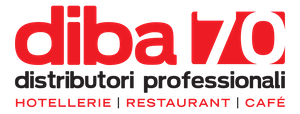
A bookkeeper can be the business owner, an in-house employee, freelancer or professional from an online bookkeeping service like QuickBooks Live or Bench. Outsourced bookkeeping services can provide your business with expertise without the overheads of hiring an in-house bookkeeper. It’s a cost-effective solution for small businesses or those experiencing https://www.bookstime.com/ rapid growth. The title ‘full charge’ accurately describes the breadth and depth of their responsibility – they are ‘fully in charge’ of an organization’s bookkeeping needs. Given this broader scope, a full charge bookkeeper typically requires more experience and a deeper understanding of financial management than a regular bookkeeper.
Most of the full-charge bookkeepers started as regular bookkeepers, gained experience, went through advanced accounting software training, and worked their way up the ladder. Since this role comes with higher responsibilities, it requires more experience in the field. Therefore, a full-charge bookkeeper can handle many different things concerning finances. It is in their job description to perform tasks that fall between basic bookkeeping and accounting.
What does an accountant do?
Bookkeepers record financial transactions, post debits and credits, create invoices, manage payroll and maintain and balance the books. Employees also work together on tasks, so you’ll have multiple workers doing your bookkeeping at once, making the process much faster. Simply put, the roles and responsibilities of a full charge bookkeeper are a combination of the duties of a regular bookkeeper and an accountant or controller.
- Both the American Institute of Professional Bookkeepers (AIPB) and the National Association of Certified Public Bookkeepers (NACPB) offer accreditation and licensing to bookkeepers.
- They usually have more responsibilities than regular bookkeepers and are often in touch with the company’s CEO and upper management.
- Let’s review your bookkeeping needs and explore the duties of more comprehensive positions, including full-charge bookkeeping.
- This position fills a particular talent gap as a result of a small business’s growth.
- You can find more information on which transactions require supporting documents on the IRS website.
- A full charge bookkeeper’s primary job is to manage and handle all the accounts of a small or medium-sized business.
- If you’d like to hire an expert bookkeeper, look for candidates with certifications from either the National Association of Certified Public Bookkeepers or the American Institute of Professional Bookkeepers.
The top three skills for a Bookkeeper include Payroll Tax Returns, Customer Service and Reconciliations. Most important skills for a Charge Bookkeeper are Reconciliations, Payroll Tax Returns and Balance Sheet.
Full Charge Bookkeepers vs. In-House Bookkeepers
They ensure employees are compensated on time and according to applicable labor legal guidelines. Additionally, full-charge bookkeepers manage timesheets, ensuring that working hours are accurately recorded, and payroll is appropriately processed. The full-charge bookkeeper is often regarded as the financial backbone of an organization. They are entrusted with the critical responsibility of maintaining accurate financial records, full charge bookkeeper providing valuable insights to facilitate decision-making, and ensuring compliance with financial regulations. And while a full-charge bookkeeper will eventually supervise these roles, you’ll need to make sure you’re appropriately staffed to fill the void this promotion leaves behind. Many companies find it easier to simply outsource a full-charge bookkeeper in the interest of maintaining internal staff consistency.

Other business owners hire bookkeepers, whether part-time, full-time, or full-charge, which all vary as far as what kind of service they offer you versus how much they cost. However, full-charge bookkeepers often don’t have any special certificate that gives them the title. Also, there are no official requirements, whether educational or professional, for this occupation.


